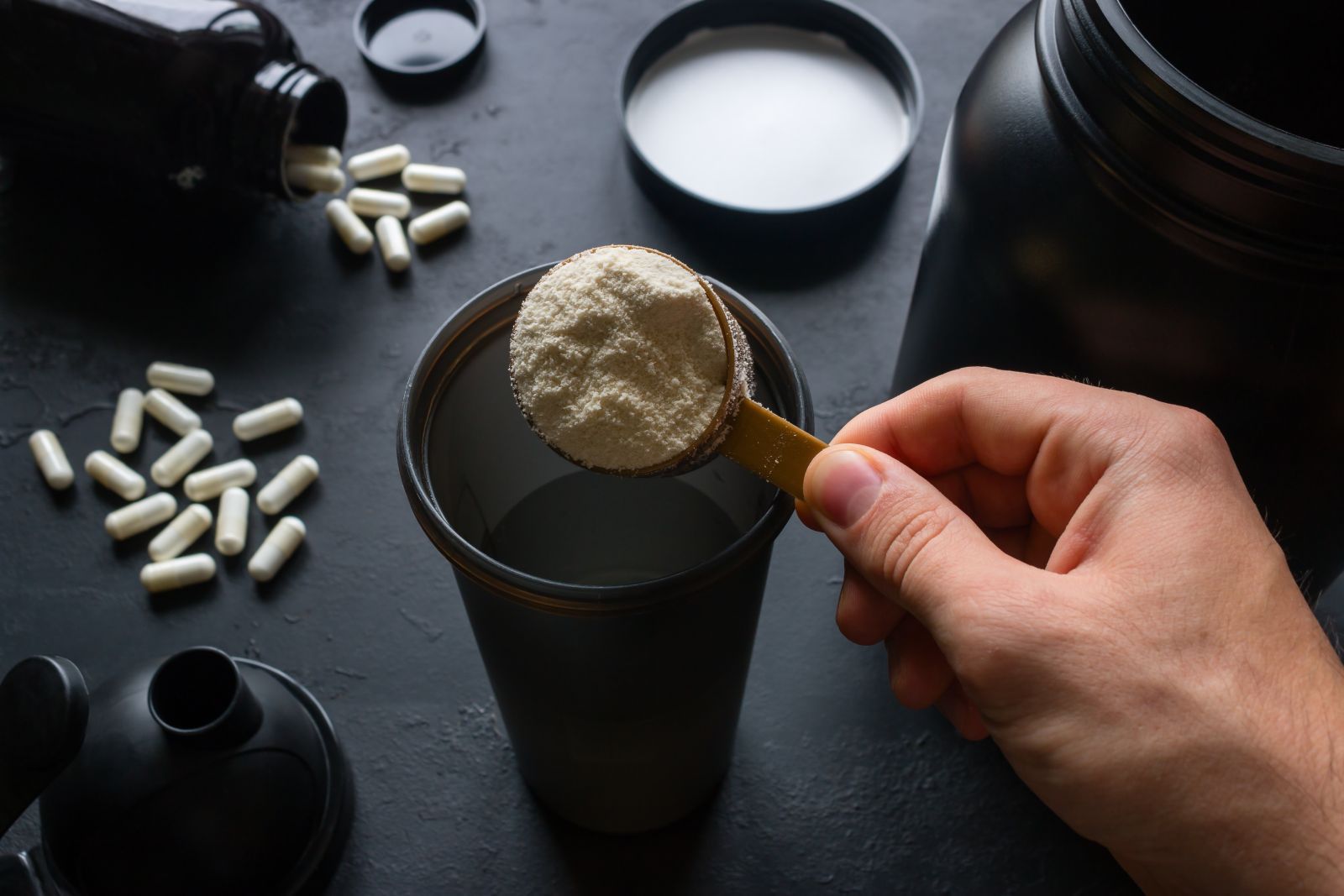
Alpha-lipoic acid (ALA) is a potent antioxidant that occurs naturally in food, as well as being produced in the human body. Alpha-lipoic acid is called a vitamin-like substance because it chemically resembles the B vitamins. Let's find out why you should supplement with alpha-lipoic acid.
- Alpha-lipoic acid - properties
- Alpha-lipoic acid - lowers blood sugar and cholesterol levels
- Alpha-lipoic acid - dietary sources
- Alpha-lipoic acid - dosage.
- Alpha-lipoic acid - side effects
Alpha-lipoic acid - properties
Alpha-lipoic acid exhibits antioxidant, anti-inflammatory, anti-diabetic, antiatherosclerotic, anti-obesity, anti-aging, and cardio- and neuroprotective properties. Alpha-lipoic acid reduces inflammation and protects the body's cells from the harmful effects of reactive oxygen species. Studies conducted with humans have shown that supplementation with alpha-lipoic acid contributes to a significant reduction of inflammatory markers in the blood, such as C-reactive protein (CRP), interleukin-6 (IL-6) and tumor necrosis factor alpha (TNF-alpha). Supplementation with alpha-lipoic acid can prevent late complications of diabetes, especially diabetic neuropathy, which is nerve damage that results in loss of sensation of touch, vibration, pain and temperature. It has been shown that 4-week supplementation of alpha-lipoic acid can alleviate the aforementioned symptoms of diabetic neuropathy. In addition, alpha-lipoic acid may promote weight loss, slow cognitive decline in patients with Alzheimer's disease, and reduce markers of oxidative stress and inflammation in people with type 2 diabetes and ischemic heart disease*.
Alpha-lipoic acid - lowers blood sugar and cholesterol levels
Alpha-lipoic acid supplementation can lower blood glucose, total cholesterol, low-density lipoprotein LDL (so-called "bad" cholesterol) and triglycerides**. Notably, patients with type 2 diabetes who supplemented with alpha-lipoic acid had lower fasting blood glucose levels, as well as glycated hemoglobin (HbA1c), triglycerides and LDL fraction cholesterol. **Alpha-lipoic acid supplementation can also reduce fasting blood insulin levels and the value of the insulin resistance index (HOMA-IR) in adults. It has been shown that obese individuals who supplemented with alpha-lipoic acid at doses above 600 mg per day had more significant improvements in lipidogram. This may indicate that alpha-lipoic acid supplementation is more effective in people with lipid and carbohydrate disorders.
Alpha-lipoic acid - dietary sources
Alpha-lipoic acid exists in two chemical forms, referred to in professional terminology as enantiomers (isomer) S and R. The R enantiomer is mainly responsible for the health-promoting properties of alpha-lipoic acid. Food is the natural source of the R isomer, while dietary supplements contain both R and S** enantiomers. In addition, **alpha-lipoic acid is produced in the human body, but in insufficient amounts to meet the energy needs of cells.
The main dietary sources of alpha lipoic acid in the human diet are vegetables, fruits and meat and offal. Alpha-lipoic acid is naturally found in such foods as spinach, broccoli, Brussels sprouts, tomatoes, rice bran and animal liver, hearts and kidneys. Offal contains alpha-lipoic acid, as it is synthesized in the mitochondria of mammalian tissues, which are characterized by high activity and a large number of mitochondria (including: testes, heart, kidneys, liver).

Alpha-lipoic acid - dosage.
Current research shows that alpha-lipoic acid supplementation is effective at a daily dose of 300 to 600 mg. Some studies have used much higher doses as high as 1,200 mg per day, which did not cause any negative side effects. Dietary supplements containing alpha-lipoic acid can be taken on an empty stomach. It is indicated that alpha-lipoic acid is absorbed via transporters and does not require the presence of fats in a meal, despite being a fat-soluble compound.
Alpha-lipoic acid - side effects
Studies conducted with humans have shown that supplementation with alpha-lipoic acid in a daily dose of up to 2,400 mg is completely safe for human health and does not cause any negative side effects. Alpha-lipoic acid supplementation is also safe for pregnant women.
However, alpha-lipoic acid may cause nausea, vomiting and mild skin reactions in some people. In addition to this, all people who regularly take diabetes medications should be especially careful when supplementing with alpha-lipoic acid, as their simultaneous use can lead to too much lowering of blood glucose levels. There are also indications suggesting that supplementation with alpha-lipoic acid may contribute to a decrease in blood levels of thyroid hormones, so patients with hypothyroidism should consult the use of alpha-lipoic acid with their healthcare provider.
Sources:
-
Haghighatdoost F, Hariri M.: Does alpha-lipoic acid affect lipid profile? A meta-analysis and systematic review on randomized controlled trials. Eur J Pharmacol. 2019 Mar 15;847:1-10.
-
Mousavi SM, Shab-Bidar S, Kord-Varkaneh H, et al: Effect of alpha-lipoic acid supplementation on lipid profile: A systematic review and meta-analysis of controlled clinical trials. Nutrition. 2019 Mar;59:121-130.
-
Jibril AT, Jayedi A, Shab-Bidar S.: Efficacy and safety of oral alpha-lipoic acid supplementation for type 2 diabetes management: a systematic review and dose-response meta-analysis of randomized trials. Endocr Connect. 2022 Sep 26;11(10):e220322.
-
Mahmoudi-Nezhad M, Vajdi M, Farhangi MA.: An updated systematic review and dose-response meta-analysis of the effects of α-lipoic acid supplementation on glycemic markers in adults. Nutrition. 2021 Feb;82:111041.
-
Fogacci F, Rizzo M, Krogager C, et al: Safety Evaluation of α-Lipoic Acid Supplementation: A Systematic Review and Meta-Analysis of Randomized Placebo-Controlled Clinical Studies. Antioxidants (Basel). 2020 Oct 19;9(10):1011.
-
Vajdi M, Abbasalizad Farhangi M.: Alpha-lipoic acid supplementation significantly reduces the risk of obesity in an updated systematic review and dose response meta-analysis of randomized placebo-controlled clinical trials. Int J Clin Pract. 2020 Jun;74(6):e13493.
 ⮜ Previous article
⮜ Previous article
Which overnight protein?
 Next article ⮞
Next article ⮞